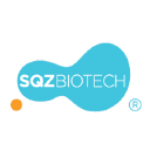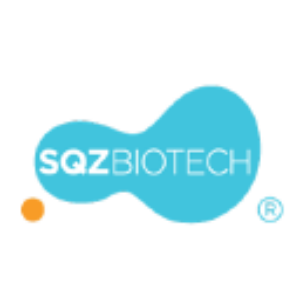Welcome to our dedicated page for SQZ news (Ticker: SQZ), a resource for investors and traders seeking the latest updates and insights on SQZ stock.
Our selection of high-quality news articles is accompanied by an expert summary from Rhea-AI, detailing the impact and sentiment surrounding the news at the time of release, providing a deeper understanding of how each news could potentially affect SQZ's stock performance. The page also features a concise end-of-day stock performance summary, highlighting the actual market reaction to each news event. The list of tags makes it easy to classify and navigate through different types of news, whether you're interested in earnings reports, stock offerings, stock splits, clinical trials, fda approvals, dividends or buybacks.
Designed with both novice traders and seasoned investors in mind, our page aims to simplify the complex world of stock market news. By combining real-time updates, Rhea-AI's analytical insights, and historical stock performance data, we provide a holistic view of SQZ's position in the market.
SQZ Biotechnologies (NYSE: SQZ) reported a complete response in the first patient from the lowest-dose cohort of its Phase 1 SQZ-AAC-HPV-101 clinical trial. Following a review by the Study Safety Committee, the trial is advancing to the highest-dose cohort. The company is experiencing strong enrollment rates, with initial data from the highest-dose cohort expected in Q4 2023. The first patient, a 61-year-old male with metastatic HPV16+ rectal cancer, demonstrated good tolerability of the treatment, which has led to positive outcomes after several cycles.
SQZ Biotechnologies Company (NYSE: SQZ) announced its 2022 financial results and significant clinical updates. The company is focused on advancing its SQZ® eAPC and SQZ® AAC programs. Key points include: FDA fast track designation for SQZ® eAPC targeting HPV16+ tumors; a confirmed complete response in the lowest-dose cohort of the SQZ-AAC-HPV-101 trial; and strong patient enrollment rates. Financially, SQZ reported revenues of $21.5 million, down from $27.1 million in 2021, with a net loss of $79.5 million. As of year-end 2022, the company had $63.7 million in cash, sufficient to support operations into 2024.
SQZ Biotechnologies (NYSE: SQZ) announced it received a notice from the New York Stock Exchange on January 18, 2023, regarding non-compliance with Section 802.01C due to an average closing stock price below $1.00 over a consecutive 30-day trading period. The notice does not lead to immediate delisting. The company has six months to regain compliance, which could involve a reverse stock split subject to shareholder approval. SQZ remains focused on its innovative Cell Squeeze® technology and is committed to improving its standing within the NYSE while addressing challenges related to stock valuation.
SQZ Biotechnologies has received FDA Fast Track Designation for its Enhanced Antigen Presenting Cell (eAPC) candidate targeting HPV16+ advanced tumors. Interim results from the ongoing eAPC Phase 1/2 trial indicate stable disease in 50% of evaluable patients, including one with prolonged stable disease. The therapy has shown a median drug viability exceeding 90%. This designation aims to expedite the development of treatments for serious conditions, enhancing the potential for quicker patient access.
SQZ Biotechnologies (NYSE: SQZ) announced a strategic shift to prioritize its second-generation enhanced Antigen Presenting Cells (eAPC) therapy for HPV16 positive tumors. This decision follows the resignation of CEO Armon Sharei, with Howard Bernstein appointed as Interim CEO. The company will reduce its workforce by 60% and expects restructuring expenses of $5 million, extending its cash runway into 2024. The eAPC program aims for a Phase 1/2 data readout by mid-2023, though other therapy programs, including APC and TAC, will be paused.
SQZ Biotechnologies presented preclinical research showcasing its Cell Squeeze® technology at the Society for Immunotherapy of Cancer (SITC) meeting. The technology aims to effectively engineer diverse cell types for therapeutic applications, potentially reducing manufacturing times and costs. Notably, the COMMANDER-001 Phase 1/2 trial, involving SQZ-eAPC-HPV for HPV16+ tumors, was highlighted, emphasizing its ability to expand eligible patient populations by 2-3 times. The ability to create multiantigen-specific responses through linked antigen mRNA constructs was also discussed, offering personalized cancer therapy potential.
SQZ Biotechnologies (NYSE: SQZ) reported its third quarter 2022 results, highlighting a revenue of $3.5 million, down from $4.8 million in Q3 2021. R&D expenses slightly decreased to $19.6 million, while general and administrative expenses rose to $6.9 million. The net loss remained steady at $22.6 million. The company is advancing its SQZ® platforms, with key clinical trials ongoing and an Investigational New Drug submission for the TAC platform expected in H1 2023. Cash reserves stand at $84.2 million, projected to cover operations into Q4 2023.
SQZ Biotechnologies (NYSE: SQZ) has published preclinical research demonstrating the effectiveness of its Activating Antigen Carrier (AAC) platform in activating CD8 T cells and enhancing their tumor infiltration, leading to improved anti-tumor responses. The study, published in Frontiers in Immunology, revealed that combining AAC therapy with Cisplatin, a chemotherapy agent, significantly increased efficacy in a mouse tumor model. The AACs, engineered from red blood cells, are designed to deliver tumor antigens to professional antigen presenting cells, promoting T cell activation.


